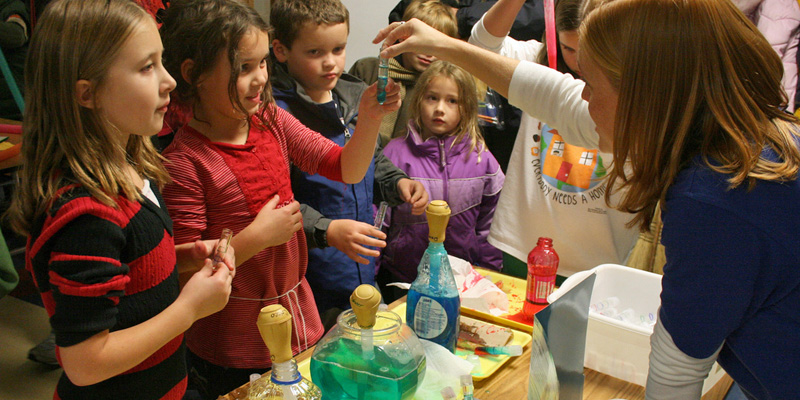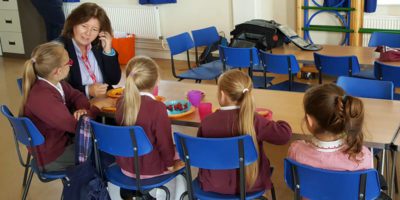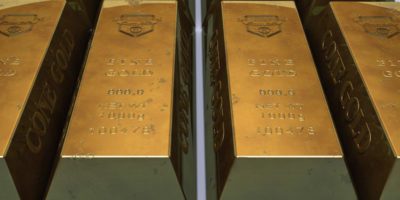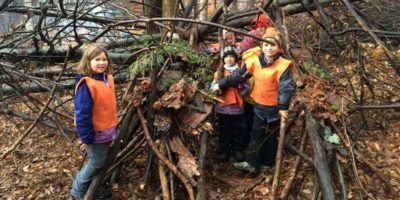Louise Lucas is a teacher at King Charles Primary School, Walsall, where she teaches Year 5. She studied science at A-level and studied for a science degree, but it wasn’t until several years later that she started volunteering at her son’s school and she decided to train to become a primary school teacher. She’s now championing use of ‘messy learning’ techniques to build pupil confidence and engagement.
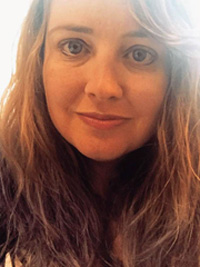
“…When I was a single parent living in a council flat I used to get annoyed with the shock on people’s faces when I said I had a science degree and was working…”
An unconventional route into teaching
When my son was four, I began working voluntarily in my son’s school. (I was a 29-year-old penniless, single parent on my own in a town I didn’t know – my son was seven months old his father left us in a lot of debt. When my son was three he and and I were made homeless when I suffered domestic violence at the hands of my next partner. I was housed in Walsall where my personal and educational journey has since thrived.) Prior to this I worked in catering and hospitality, where I really enjoyed working in children’s clubs.
I was soon employed in the school breakfast club and then as a lunchtime supervisor. Six months later I also became a teaching assistant and school office support. I worked in these three roles for ten years before becoming a teacher. Whilst I was a teaching assistant, and my limited confidence was growing, I witnessed both outstanding teaching and, sadly, some that was not so good (from teachers outside my school).
In those poor times, I knew I could do better for children so the passion to become a teacher started. I also worked one-to-one with a child with learning differences who helped me with my teaching and personal journey in an amazing way. Whilst working three jobs in a school and bringing up my son, I attended the University of Wolverhampton part time and gained a degree in special needs and inclusion studies.
Sadly, I fell very ill and had to have an emergency hysterectomy so I didn’t start my PGCE [postgraduate certificate of education] until a year later. I became a teacher two years ago and my son did well in his GCSEs so he is now training in the army. He lives away from home and earns his own money. I am so proud of our career journey together. I became a teacher at 39 and I am loving it!
My role on a day to day basis
My role involves a plethora of things from day to day! I work in Year 5. I get into work around 7am to ensure everything is ready for the day – lessons, teaching assistant interventions, resources, daily timeline.
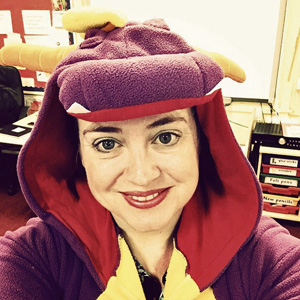
In my third year at my school now I think I am more established as on open, nurturing teacher who can relate very well to many parents I work with, so my day often starts greeting children and having heart felt conversations with families. (Very often I am ‘dressed up’ for the day’s learning – I love dressing up in character.)
If we don’t have assembly I like to start the day singing (GoNoodle or Sing Up), and discussing Newsround. I tend to go with the flow of the children. Lessons start at 9.20 and the day flies by then with teaching and learning on both sides. Very often the children change the pace and direction of the lesson – those are my favourite lessons.
There is often music on in the classroom and I ensure we have a good belly laugh about something every day! I also run school council (meetings every Wednesday lunchtime), and I have a colouring club on a Thursday lunchtime (although the children changed the name to ‘relaxing club’). I love this club as a lot of Key Stage 1 pupils come along, so it is nice to chat to other children.
I am often in my room at lunchtime marking, and have an ‘open door’ policy for the children if any want to come in for a chat about anything. Last year a lot of my old class popped in which was lovely. I have strong relationships with my children and families – I’m proud of these as I have worked hard to build them. After meetings, marking work and prep for the day I leave school around 6ish. I try not to bring work home but it’s not always possible – especially when you are a newly qualified teacher!
The joys of messy learning
The ‘messy learning’ really evolved in my second year of learning, mainly from the children. One thing I noticed as a teaching assistant and in my teacher training is that children do not do a lot of creative things. Sometimes it seems to be only about the maths, grammar and English. I wanted to stop that, I believe that if we teach every subject in a cross curricular way all children can find what they love and enjoy, and also find out how they learn.
My ‘messy’ lessons started in autumn term last year. One week in the afternoons we had been making and painting WW2 gardens in design technology, and in science we had been exploring reactions with food colouring, flour, washing up liquid vinegar – all sorts!
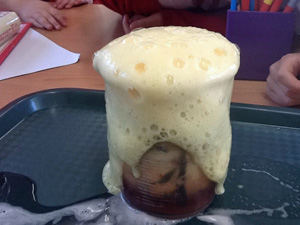
The children were so engaged and on the Friday when we all chatted about the week they all said how they loved the week, and after discussions I realised that they had also learned a lot. I promised I would do more messy lessons as long as they always remembered they were about learning (and we had to put work in the books!). Also, I am a bit messy and creative whereas my fabulous teaching assistant, Miss Bailey, likes order, so we have to warn her about lessons coming up, which the children love. They also love winding her up that ‘it’s going to get messy in the afternoon’!
It actually made the class and teaching assistant bond even stronger. I often get children coming up to me now saying they cannot wait to be in my class and do ‘messy science’! They are effective as they are fun and engaging, and children know as they ‘mess’ more they ask more questions that we will test. Often the children come up with questions that I didn’t think of.
Whilst talking to the children as they are exploring and experimenting you can find out their misconceptions. Messy lessons let children be children and learn without releasing they are doing so. Some children don’t like getting messy, which is fine too. They are always happy watching and researching on the laptops.
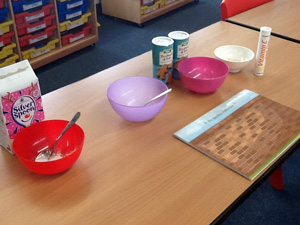
So far, we have had lots of messy science, messy maths (capacity and volume, one for outside, messy potions with fractions and percentages), messy instructions (students making their own sherbet lemon) and messy art (which includes learning about classical music).
Science is important because it is all around us
We had a new science coordinator who looked at all school science books and chatted to my class at the end of autumn term 2016. After this the head and deputy came to see me personally to tell me that my books were the best in the school. The coordinator told me (and always does) that my children are so happy and enthusiastic about science, and I was the only teacher who did a practical lesson every week. I was shocked and proud!
I encourage my children that science is important because it is all around us – everything we do is because of science. Also, science has so many cross curricular links. Some of the children in my class had learning differences and didn’t like writing. I assured them that writing in all of their books is assessed which meant that they wrote more in the science book – instructions, modal verbs, causal connectives – happily without realising it. Soon, they were writing more in their literacy lessons!
The links with maths are endless and the children soon enjoyed collecting data and making graphs on Google Classroom. Science is such a broad subject – the more children are exposed to it the more they want to learn and explore. Both years several children have left my class saying they want to be in a science related career – an astronaut, palaeontologist, zoo keeper.
Science is for everyone
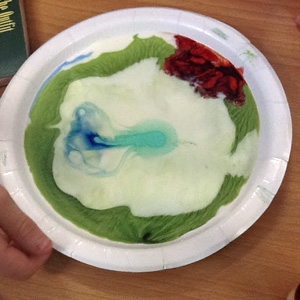
Last Christmas, boys and girls asked their parents for science kits because they loved science at school. Also, there are amazing role models in science we can expose the children to, which start amazing discussions (these have links with history and geography for lessons too). Science encourages children to ask questions and become independent, inquisitive learners. It ties all the core and non-core subjects together. Science is amazing!
If girls love science in primary they should love it in secondary. The passion for science probably needs to start early on for it to be evolved in secondary school. Girls need to be confident in asking questions – no question is daft – and be exposed to many positive female role models. They also need to know that science is for everyone, not just the boys! (This I have noticed from research, but not in my classroom).
Being told I couldn’t get science A-levels and a science degree – #IDidItAnyway
In 1992 when I was 16, I was told by a female biology teacher that I would not get science A-levels. Luckily, a male chemistry teacher supported me. I vowed I would be a teacher like him and not her. I have been pigeon holed and it is frustrating – in the 90s I had won ‘beauty contests’ (entered by family to boost my confidence after I had been badly bullied at school I was at a low), and was viewed as a dumb blonde.
When I was a single parent living in a council flat I used to get annoyed with the shock on people’s faces when I said I had a science degree and was working. However, these experiences made me more determined to be an amazing working role model for my son, and to become a teacher. My negative experiences with teachers made me make sure I would provide positive experiences for my class. The long-term effects that a bad teacher who favours others can be life changing and affect the mental health of learners, I would never want do that to anybody.
#WomenEd
Women Ed is a group of female teachers (and male champions) that challenges stereotypes us women have to face and fight daily. It empowers women to ignore the doubters, hold our heads high and say “I did it anyway” – proving them wrong. I got involved tweeting how I was discouraged from doing science A-levels but did them anyway – and I am now a teacher advocating messy science and encouraging all children to become scientists in any field they enjoy.
I also tweeted using the hashtag #IDidItAnyway about the time when I was told I was too nurturing to be a teacher – this is my strongest point and not getting caught up in seeing children as data makes me a good teacher. The first thing I tell my children is that you are not a level or table colour (colours grouped on ability), but you are a unique human being.
Championing equality for all pupils
It is our job as teachers to champion equality for all learners. Everybody has the right to an education and be happy. Everybody has the right to be given the same chances and find out about themselves fairly and equally. I have been watching the BBC2 programme No More Boys and Girls over the summer, which I found fascinating and I will be changing parts of my practice when I return to school. We will be having a class discussion about it and start from there.
Coming up next for me and my pupils
I am starting my third year of teaching and very excited! Messy science and other lessons will continue (starting on the 2nd day back with a water bottle flipping activity and blowing up balloons with no hands).
I was introduced to Google Classroom and ‘green screening’ last year so I am very excited to use that more. I only joined Twitter last month so I am excited to use that for teaching inspiration, and hopefully be involved with ICT (information and communications technology) in training other staff and getting our school out into the world of Twitter!
I will continue to follow @WomenEd on Twitter for support and teaching my children equally and removing the gender bias in my classroom. I am looking forward to learning more and adapting my teaching and style to my new class. I am looking forward to more fundraising activities with school council (and discussing No More Boys and Girls).
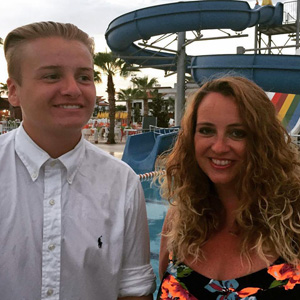
When my son turns 18 next February and joins the army I want to teach abroad from next September. Sometimes I have been sad that I could never afford my own home, but now I can move where and when I want – everything happens for a reason!
http://www.king-charles.org.uk/
https://twitter.com/thebentleyfed
https://twitter.com/wonderwomanlh
Messy science image credit: https://www.flickr.com/photos/wwworks/

